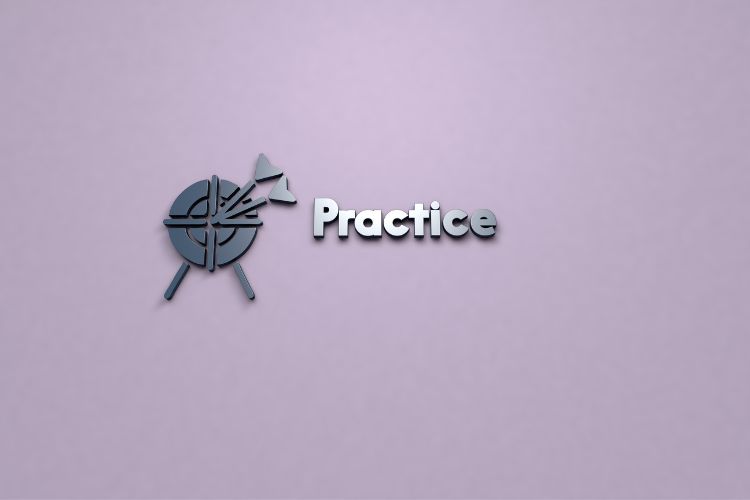We’ll go through why spacing your retrieval practice with spaced practice techniques works. We’ll also provide some strategies for spreading your language practice now that we know it enhances retention.
Why Is Spaced Practice Effective?

As we said, your brain goes through a consolidation process when you learn anything new, which can take hours or days. Spacing out your language practice offers your brain the time it needs to solidify the new information and consolidate it into long-term memory.
Reconsolidation is triggered by the effort of recalling the material from your most recent practice session, further integrating it.
The “underlying habit strength” you establish through spaced repetitions equips you to use that knowledge when you need it.
Given that you’ve forgotten some of the content and feel like you don’t understand it, a spaced practice initially feels less effective than massed practice. However, the extra work is precisely what makes the method effective.
Massed practice, or what scientists call “momentary strength,” gives people the instant delight of witnessing increases as they practice, so many resist spaced practice.
That sense, however, conceals the truth. Fleeting power quickly wears off since repeated exercise imprints knowledge in only your short-term memory.
2 Practice-Spacing Techniques
Interleaving and varied practice are two techniques that increase recall and comprehension while evenly sprinkling your language learning activities.
1. Interleaving Practice

Interleaving, or mixing up your practice with several related topics or skills, is one strategy to spread your practice and increase your retention.
Your language comprehension and memory are enhanced by interleaving in two ways:
- Changing around the things you practice spreads out your practice in any one area automatically.
- Shifting your attention between similar topics encourages you to draw connections. This results in an improvement in your comprehension of each subject.
The secret of interleaving is to move on to the next idea or skill before you’ve finished honing the previous one.
Imagine you’re studying Spanish; when using the interleaving method, you might study conjugations for one week and then move on to a different aspect of Spanish grammar the next week before you’re completely comfortable with the first topic.
Teachers and students frequently oppose interleaving because switching gears before you’re ready feels counterintuitive and frustrating.
Interleaving reduces your performance while learning the information, unlike the temporary boost you gain from mass repetition. However, over time, interleaving continues to provide higher retention.
College students were taught how to compute the volumes of four geometric shapes in one lesson. While the other group of students worked on a set of interspersed practice problems, one group completed practice problems organized by shape.
On that day, students who engaged in mass practice outperformed those who engaged in interleaved practice, scoring an average of 89% accurate responses as opposed to 60%.
However, those who had completed interleaved practice averaged 63% accuracy on a test the following week; the other group fell to 20%.
(Shortform note: Although the massed practice group’s performance declined significantly while the interleaved group’s marginally improved, the interleaved group’s performance never approached that of the massed practice group’s starting work.
Instead, the interleaved group may have improved its overall score by simply engaging in the additional interleaved practice. Still, the book doesn’t address this.)
With interleaving, you may better simulate and be ready for the final exam as well as real-world scenarios where you’ll need to use a variety of your language abilities.
2. Varied Practice

Varied practice entails applying a skill in various scenarios and improving your ability to use that talent in various contexts.
Variable practice improves your ability to distinguish between various contexts to decide the appropriate course of action for a given situation and your comprehension of the underlying ideas. In this way, mixing up your training better prepares you for unforeseen circumstances.
Variations demand more thinking and effort from you, amplifying repetition’s benefits.
How can you use varied repetition in your language studies, then? Even from hour to hour, try switching up your study methods, making it more likely that you can apply the ability in a different situation.
For instance, if studying German pronunciation, listen to and practice the numerous sounds, sound combinations, and accents/dialects of the language.
When you’re done, read through a relevant textbook chapter on German pronunciation. Then, listen to some German audio and try writing what you hear.
Thus, you’ll be better prepared to handle listening comprehension questions that call on you to understand native speakers in various contexts and locations.
One study shows how variety works: Children in two groups practiced tossing bean bags into buckets. While one group exercised with a mixture of buckets two and four feet away, the other only used buckets three feet away.
The youngsters practicing on a variety of buckets—none being three feet away—outperformed those who had only practiced on buckets three feet away by a considerable margin after a few months of training.
According to neuroimaging studies of individuals learning new motor abilities, diverse practice activates a region of the brain associated with more difficult motor skills. On the other hand, massed practice activates a region associated with simpler tasks.
This argues that developing a skill through time and different types of practice results in a more sophisticated mastery that broadens its application.
Cognitive tasks have had similar outcomes. For example, one set of students was instructed to solve the same anagram repeatedly in one experiment. In contrast, the other group was instructed to solve several anagrams that produced the same word.
The second group still outperformed the first group when all the students were evaluated on the anagram that the first group had figured out—the sole anagram the group had worked on throughout the trial.
Be careful not to get into blocked practice, which is performing variations in the same order, when changing your practice. Blocked practice is equivalent to not rearranging your flashcards.
You receive a range of topics and practice spaced-out retrieval, but your efficiency is limited because you always encounter the topics in the same order.
Improve Your Discrimination with Interleaved and Diverse Practice

Contrary to a superficial awareness of facts and figures, interspersed and diverse practice helps you develop a conceptual understanding of the underlying ideas.
The conceptual knowledge you acquire through these approaches improves your ability to discriminate or decide what knowledge or skill you need in different situations.
This is an essential component of applying what you learn about your target language to actual circumstances.
In one experiment, participants were instructed to study the works of numerous artists to examine a piece of artwork and identify the painter.
While some participants employed massed practice, spending considerable time studying one artist before going to the next, others used interleaving and alternated among many artists.
Participants could better recognize the distinctions among the works of various artists than the features they shared. For example, they could identify the artists of paintings they had never seen before and the paintings they had studied, thanks to their ability to discriminate.
Keep Honing Your Mastered Skills with Spaced Practice

No matter how well you already know a language, you must practice it often to retain mastery. Avoid falling victim to the “familiarity trap” when you disregard a talent because you believe you have mastered it.
Instead, you must practice the language less regularly as you improve, but you should never completely stop.
For instance, a basketball coach devotes most workouts to running plays, shooting exercises, and scrimmages.
Although dribbling and passing are fundamental abilities ingrained in the players’ toolbox, the coach must still drill them consistently. If the players lose competency in the fundamentals, they cannot perform the higher-level talents.
Set priorities for your practice with Leitner system-organized flashcards that organically spread your work.
Put your flashcards in a box with four compartments:
- Put the flashcards you struggle with the most in the first section. You’ll practice with them the most.
- Place the flashcards you’re a little better at within the second area. These will receive roughly half as much practice as the first portion.
- Place the flashcards you’re even better at within the third section. These will get less practice than the exercises in the preceding section.
- Place the flashcards you rarely get wrong in the fourth section. These are the ones you’ll use the least.
Move a flashcard to the previous section when you have the incorrect response. After you select the correct response, advance the flashcard by one section.
Learning a language is about acquiring and holding onto the knowledge that you may apply in practical settings.
The randomization of practical experience is simulated through spaced retrieval, varied practice, and interleaving. Every real-life situation in which you can practice using your target language is a test in and of itself.
Remember: Desirable Challenges Improve Learning

The language learning techniques we’ve covered increase comprehension and retention since your brain embeds knowledge more deeply the more it has to work.
Contrary to popular assumption, challenges of this nature, often known as “desirable problems,” increase long-term learning, refuting the notion that learning is most effective when it is fun and easy.
To be honest, there are also unwanted challenges that hinder your ability to learn:
- Lacking the necessary background knowledge to overcome and learn from difficulty.
- Dealing with a difficulty that doesn’t focus on necessary abilities.
Learning Is Hampered by Fear of Failure

You will unavoidably fail on occasion if you push yourself, take chances, and engage in learning that includes desirable problems. Failure is essential to language learning because it allows you to learn from mistakes.
People who believe failure and mistakes are essential components of learning are more likely to continue to exert effort despite setbacks, advance in their learning, and ultimately master the language they’re studying.
Research supports the advantages of challenging learning tasks, but anti-failure attitudes stubbornly cling to outmoded notions.
In the middle of the 20th century, psychologist B.F. Skinner proposed that incorrect responses hinder learning and reveal ineffective instruction.
The “errorless learning” approaches Skinner promoted involved teachers introducing new material gradually to make it more palatable and then testing pupils as they were still learning it.
Even today, few classes encourage making mistakes. Thus, many students start experiencing failure anxiety, hindering their language learning in two ways. First, their anxiety prevents them from attempting difficult lessons.
Second, anxiety arises from a fear of failing under pressure, such as during exams. Anxiety taxes your ability to retain knowledge while working through an issue. Performance anxiety strains working memory, leaving you with less mental space to solve the issue.







